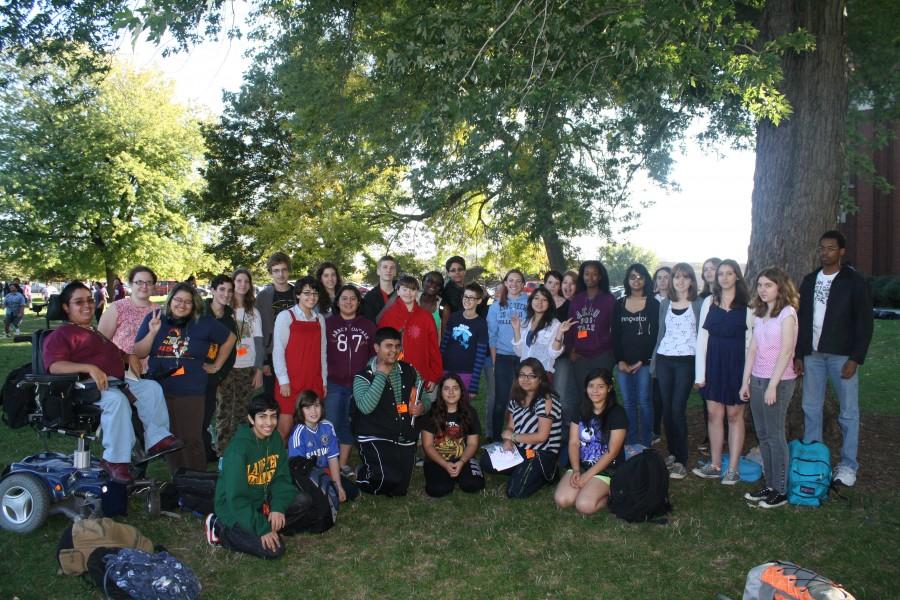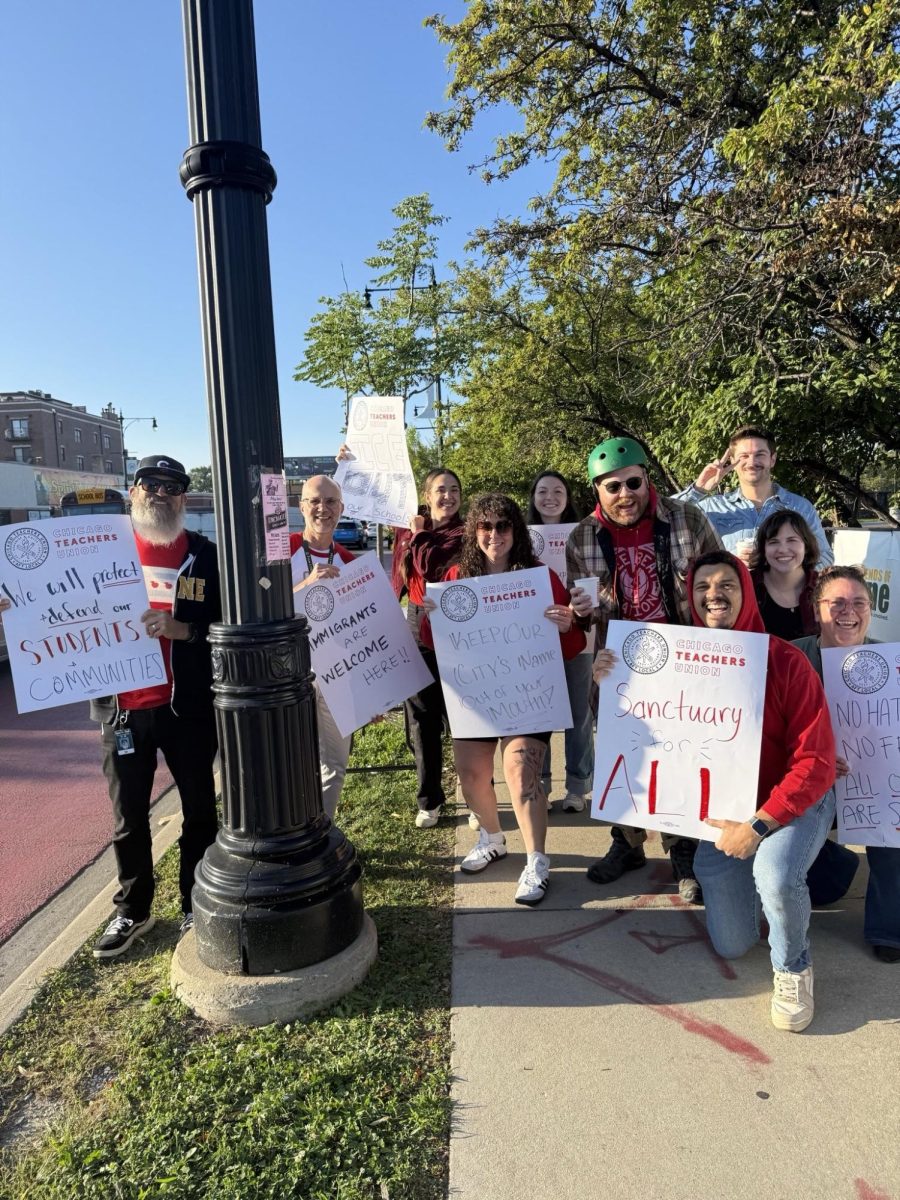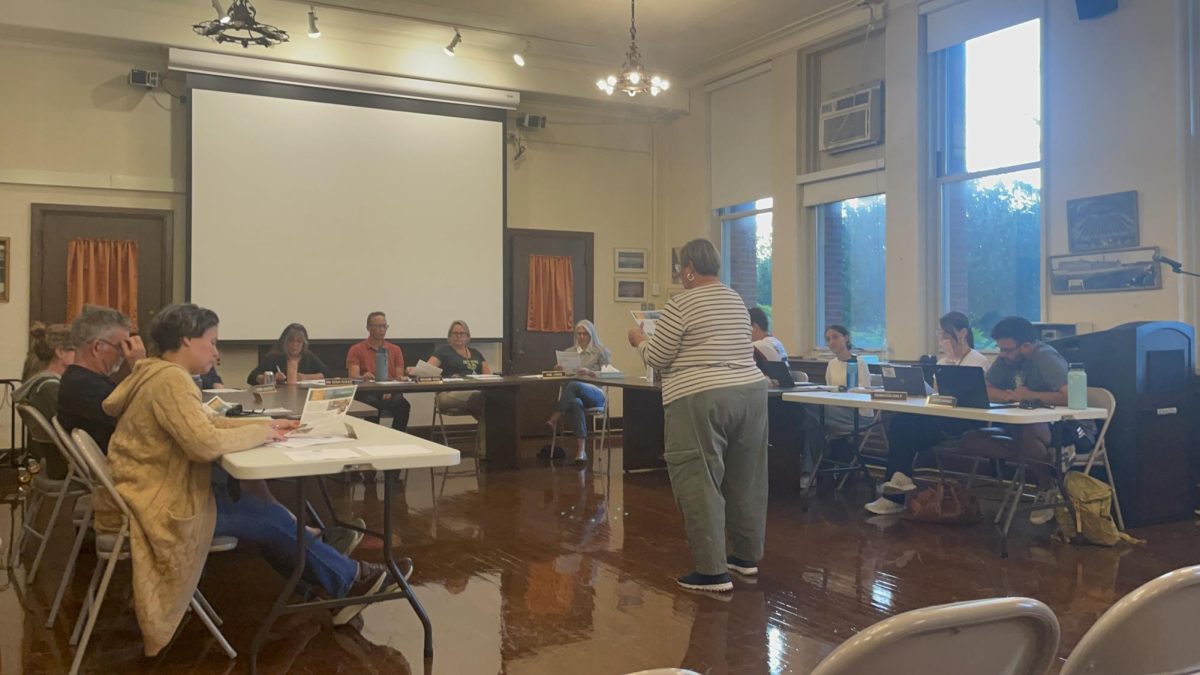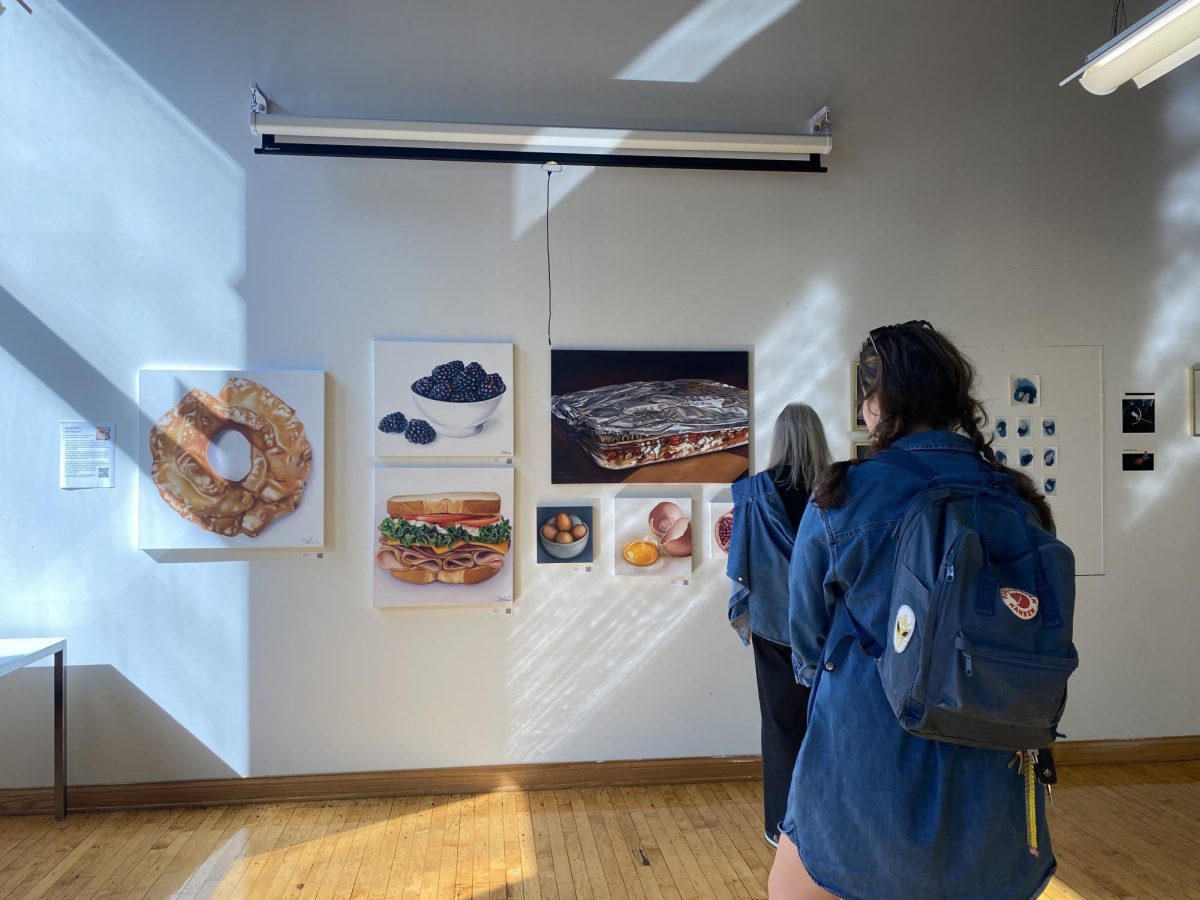By Nicole Johnson
In May, Lane’s banned book club, 451 Degrees was nominated for the Intellectual Freedom Award, awarded by the American Library Association. They were informed in June that they would receive the award.
“[Winning the award] was great because it’s a huge honor, considering all the events happening last year in relation with banning books,” said Levi Todd, Div. 450. “We were really happy to receive it. Myself and two other members will be going to the awards ceremony on Oct. 15.
The club was nominated for their participation in the protest of the ban of Persepolis and for taking action against the banning of books.
“Around the time of Persepolis and the whole banning that happened with that a few of our members went to the protest,” Todd said. “Barbara Jones, who is in charge of the American Library Association in Chicago, met us and she was really enthralled that there was a banned books club at Lane. So we got invited to the American Library Association’s national conference which was in Chicago where Barbara Jones let me know that we’d be receiving this award. [It is] called the Intellectual Freedom Award given by the Office of Intellectual Freedom.”
“We were given the award because 451 Degrees is the only banned books club on our high school level,” said Grace Barry, Div. 477. “Our reaction to [the Persepolis] debacle was immediate and proactive. We were upset that such an important book was being banned for anyone, and we were already set up as a banned books organization. It was our club’s obligation to take action.”
Persepolis, which caused the protest in Chicago on banned books last year, was originally banned in Iran, where the story takes place. It was written in the time of the violent Iranian Revolution, and the struggle to decide what kind of government Iran should have.
As Iran developed into a theocracy, the Iranian government used censorship in an attempt to maintain the country’s stability and to help prevent counter-revolutionary movements from starting and spreading. Some genres of music were also banned in Iran, such as hip-hop and heavy metal. Acts of “blasphemy” and petitions for women empowerment have ended in arrests. Iran now has a newly elected moderate president who appealed to both conservatives and reformists.
Persepolis, which goes into detail about the effects of the revolution, both positive and negative, was banned in Iran for its “unrealistic portrayals of the glorious revolution,” and because it “dwells most persuasively on the uncertainty and ambivalence of adolescence,” not politics.
The fact that Persepolis was banned in the United States, a free country, is one of the reasons why 451 Degrees works so hard to get their message about banned books out. After the protest, CPS announced that Persepolis is only banned for seventh graders.
451 Degrees was also recognized by Banned Books Week, a national campaign trying to get people to read banned books. There, Todd gave an interview to the BBC and a Californian radio station called Project Censored Radio.
“[For the] BBC interview I was trying not to freak out,” Todd said. “It’s not going to be shown across the whole world. It’s going to be shown only in Iran. That’s still really cool that we’re getting attention halfway across the world. I think they’re showing it [in Iran] to show that there’s a book club in America that’s fighting for free speech. The interview was half about the Persepolis protest, and half of it was about the book club I started.”
Todd started 451 Degrees to have an independent, student-run club that focused on the theme of banned books.
“I thought that everyone likes to be a part of something a little rebellious,” Todd said. “I thought reading banned books would give us a lot of great choices because there’s so many great banned books, and because these books are so controversial, there’s so much you can talk about. You can have healthy debates about things in the book that not everyone agrees on, and that creates great conversation.”
Contrary to how it sounds, ‘banned’ books does not mean that the books are illegal, but that they have been restricted in the use of schools for certain age groups or in different contries. However, sometimes a library or town does try to restrict the use of a book from the public, and that is what Todd and 451 Degrees try to fight.
“There are a lot of instances where parents don’t want their children reading a book because they don’t think it’s a good book and they don’t think people should be reading it,” Todd said. “There are some small areas that don’t get a lot of attention where, a library will ban a book and that’s why we have to make sure these books get read, so people can’t get away with this kind of stuff.”
As for the BBC interview, Todd hopes that his message will reach the people of Iran, and inspire them in their fight for freedom of speech.
“I think we take a lot of [our rights] for granted, and I hope that these less fortunate people in Iran, where they don’t have free speech, truly appreciate how important it is,” Todd said. “I hope a lot of them read Persepolis if they can. I just hope that they see that in America, we’re not just taking [our rights] for granted, and we understand how important it is. I think the Persepolis movement showed that.”




